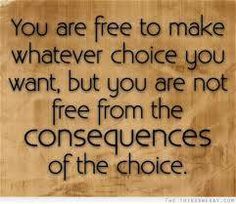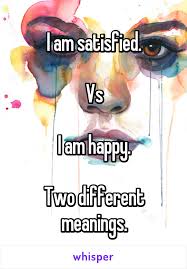 When I was first getting into rallying and cars in general, a mentor of mine (some readers may remember Wayne Wiley, may he rest in peace) had a pet peeve. He would come unglued anytime someone talking about an automobile accident said, “The car veered off the road.” “Nonsense!” Wayne would bellow. “The car didn’t veer off the road, the driver drove it off.” Blaming the car is a way to make a victim out of the driver, and I think it’s time to put accountability where it belongs.
When I was first getting into rallying and cars in general, a mentor of mine (some readers may remember Wayne Wiley, may he rest in peace) had a pet peeve. He would come unglued anytime someone talking about an automobile accident said, “The car veered off the road.” “Nonsense!” Wayne would bellow. “The car didn’t veer off the road, the driver drove it off.” Blaming the car is a way to make a victim out of the driver, and I think it’s time to put accountability where it belongs.
I admit it…I can occasionally be found listening to Rush Limbaugh. (To be fair, I am also a contribution-paying member of the local NPR radio station.) “What’s this got to do with drivers (or cars) veering off the road?” you ask. Well, Mr. Limbaugh went on a rant last week about individuals being “radicalized.” It’s as if they were (like the drivers in Wayne Wiley’s cars) victimized by some force (car) that changed them (veered off the road), and thus they can avoid personal accountability. The fall accident claim is what you need to check out to get help with accident cases.
This article is a little out of my realm. It’s really an op-ed piece…my opinions. Straight from my Knower/Judger. Bear with me, and let me know what you think or if it even makes sense to you.
Ezra Taft Benson (and sometimes Steven Covey) are quoted as saying, “You are free to choose, but you are not free to alter the consequences of your decisions.”
It appears to me that we tend to avoid responsibility by claiming victim status. “The car veered off the road.” “I was radicalized.” “I come from a disadvantaged background.” “I come from an affluent background (affluenza).”
A case in point is that of Ethan Couch, the then-16-year-old drunk driver who killed four in a collision where his car veered (sic) into pedestrians along a highway. The case reached national proportions when the judge sentenced Couch to 10 years’ probation. It has been hypothesized that his parents never set limits for him and he “veered” out of control. There is no right or wrong for Couch as he never gained that perspective—a true “consequence” of the parents’ decisions.
Let’s look at decisions from which we cannot escape accountability.
Good driving (including texting and cell phone use). While there are occasional failures of automotive equipment, since we started aiming motorized vehicles down horse paths, there have been about 3.7 million people killed in the U.S. alone. Almost all of these accidents were simply the consequence of a decision.
Safe sex (It takes two to tango.)
Elected officials (We make a collective decision, and it has meaningful consequences.)
Financial choices (Poor me. I can’t pay my bills.)
Educational decisions (There just aren’t any opportunities.)
Parenting (The kids are out of control.)
The list goes on.
Victimization, I think, is becoming an epidemic. A choice we make as a society has been to use it as a crutch. If it didn’t work (my behavioral psych education tells me), we wouldn’t do it. But we do.
How does it work? We make unproductive decisions and some subset of society (sometimes churches, sometimes governments, sometimes rally officials) adjusts the consequences. Lessons are not learned…well, they really are. They’re just counterproductive lessons, leading us to make the same mistakes over and over again.
I’m sure there are cases where well-trained and talented drivers have failed behind the wheel, believing they were invincible. All my rally drivers get that way once in a while…we call it “red mist racing.” But they pay the consequences.
I’m sure I’ve spent more money than I made some years. Visa and MasterCard have never been particularly amenable to altering my consequences. And I learned.
I think it’s a mistake to lump these altered consequences under the moniker of “entitlement” as some of my more conservative friends would call it. I believe there are disadvantaged individuals who never get a fair shake and simply cannot make a choice that alters their consequences—the physically infirm, mentally handicapped, terminally ill, genetically disadvantaged, etc. However, I’m all for finding ways to externally alter these populations’ consequences.
If people are capable of making a choice, then I believe they can control the consequences.
With 2016 right around the corner, is your car veering off the road? It’s you behind the wheel. Choose differently.



